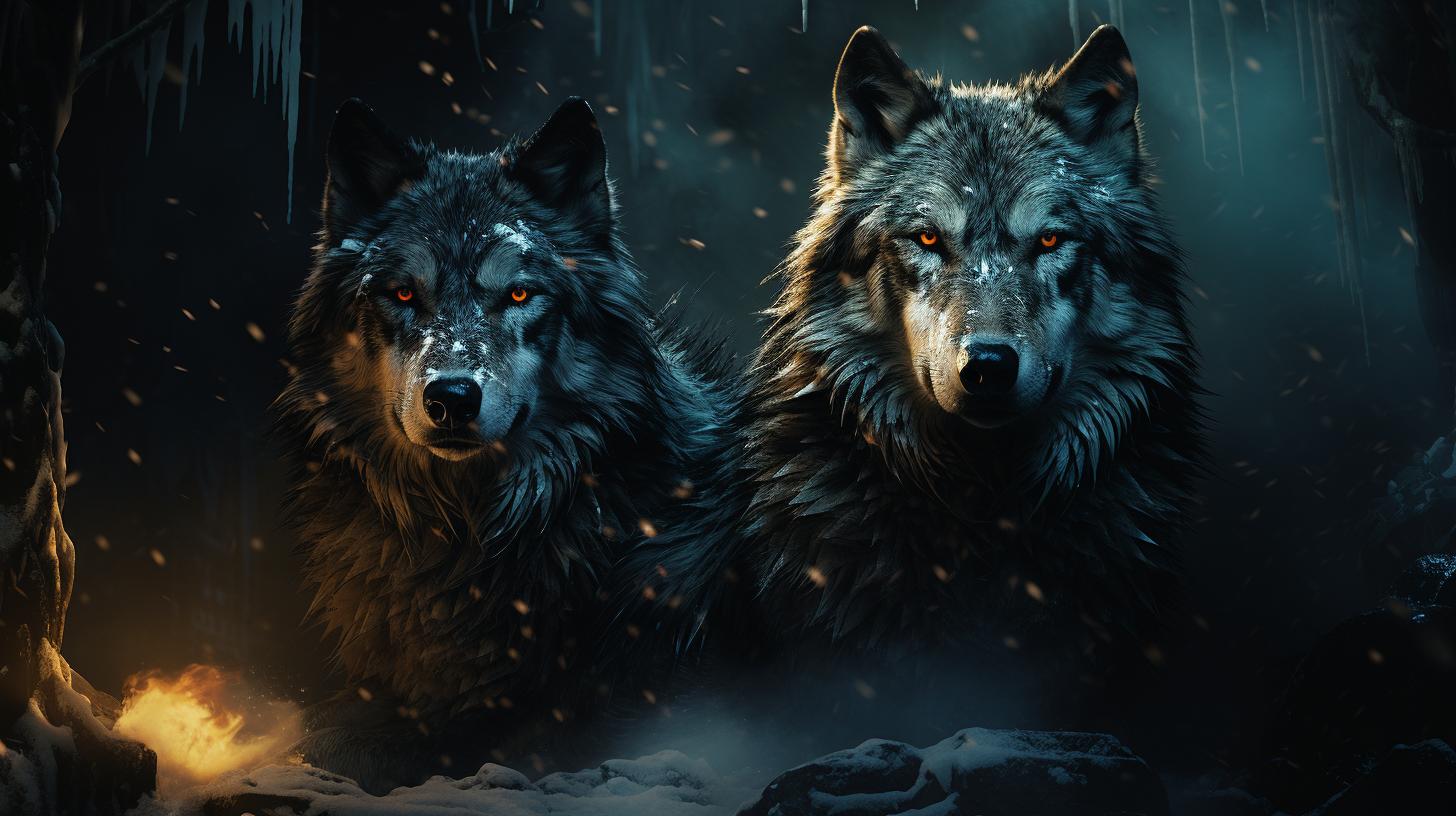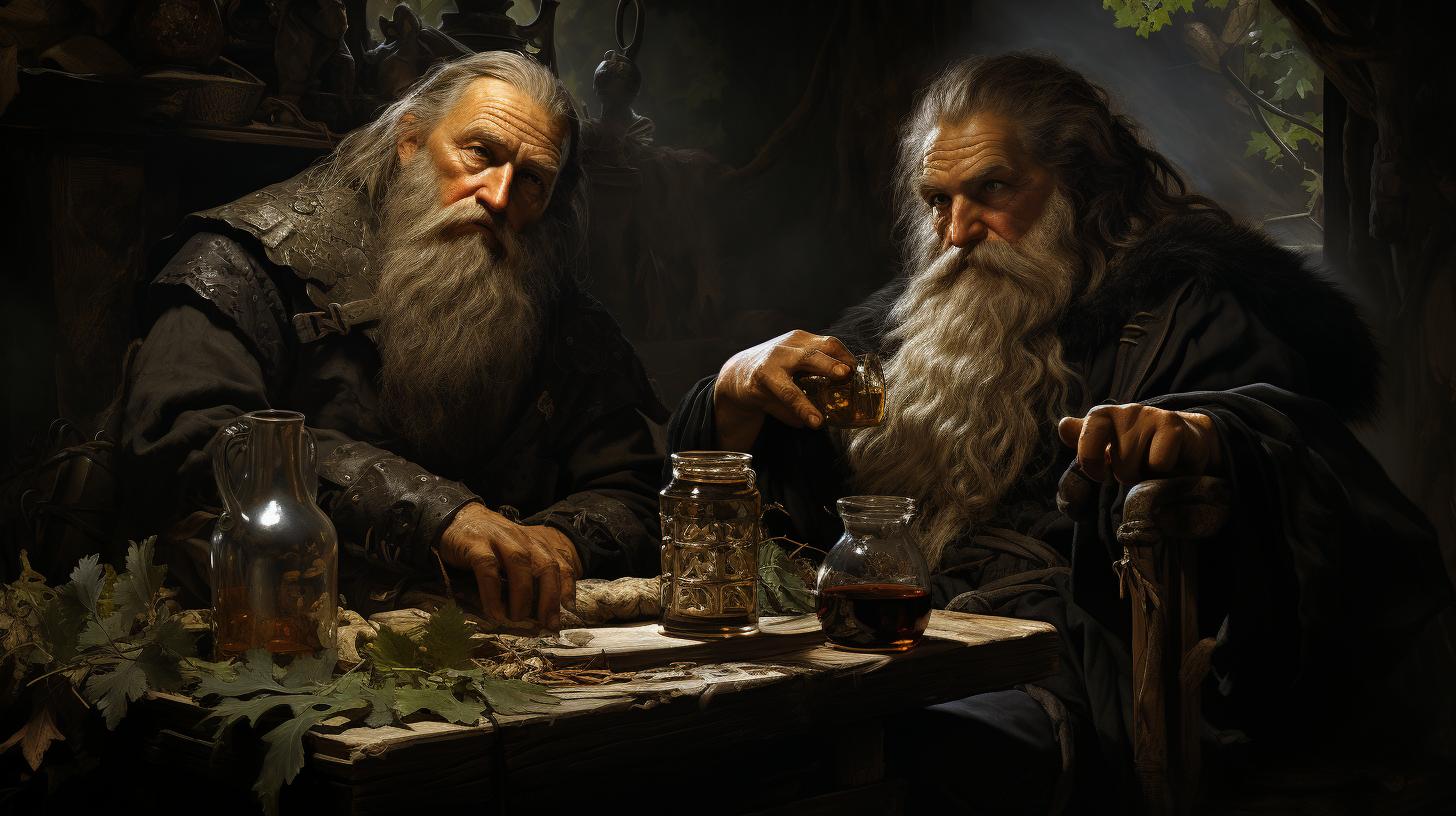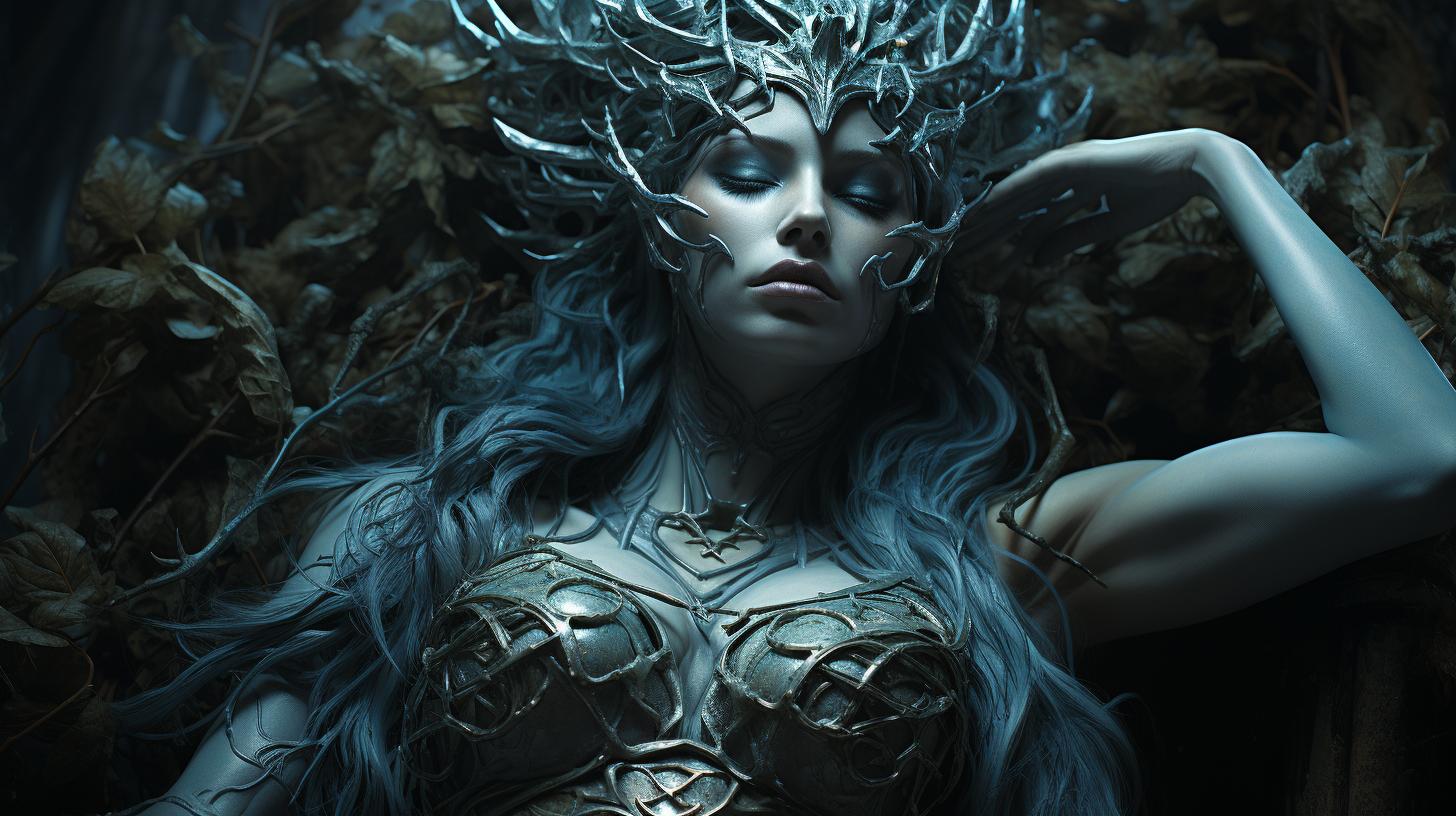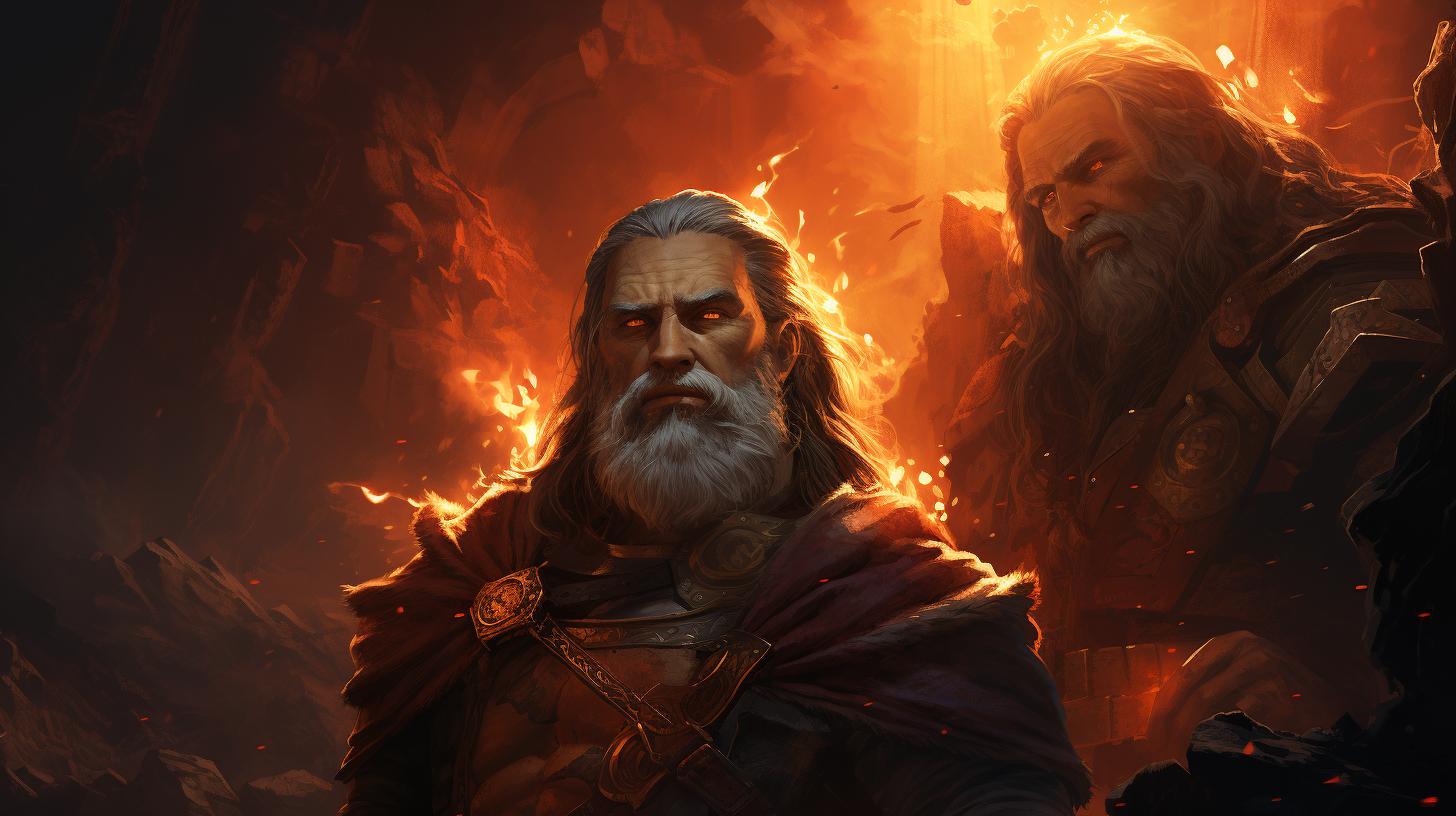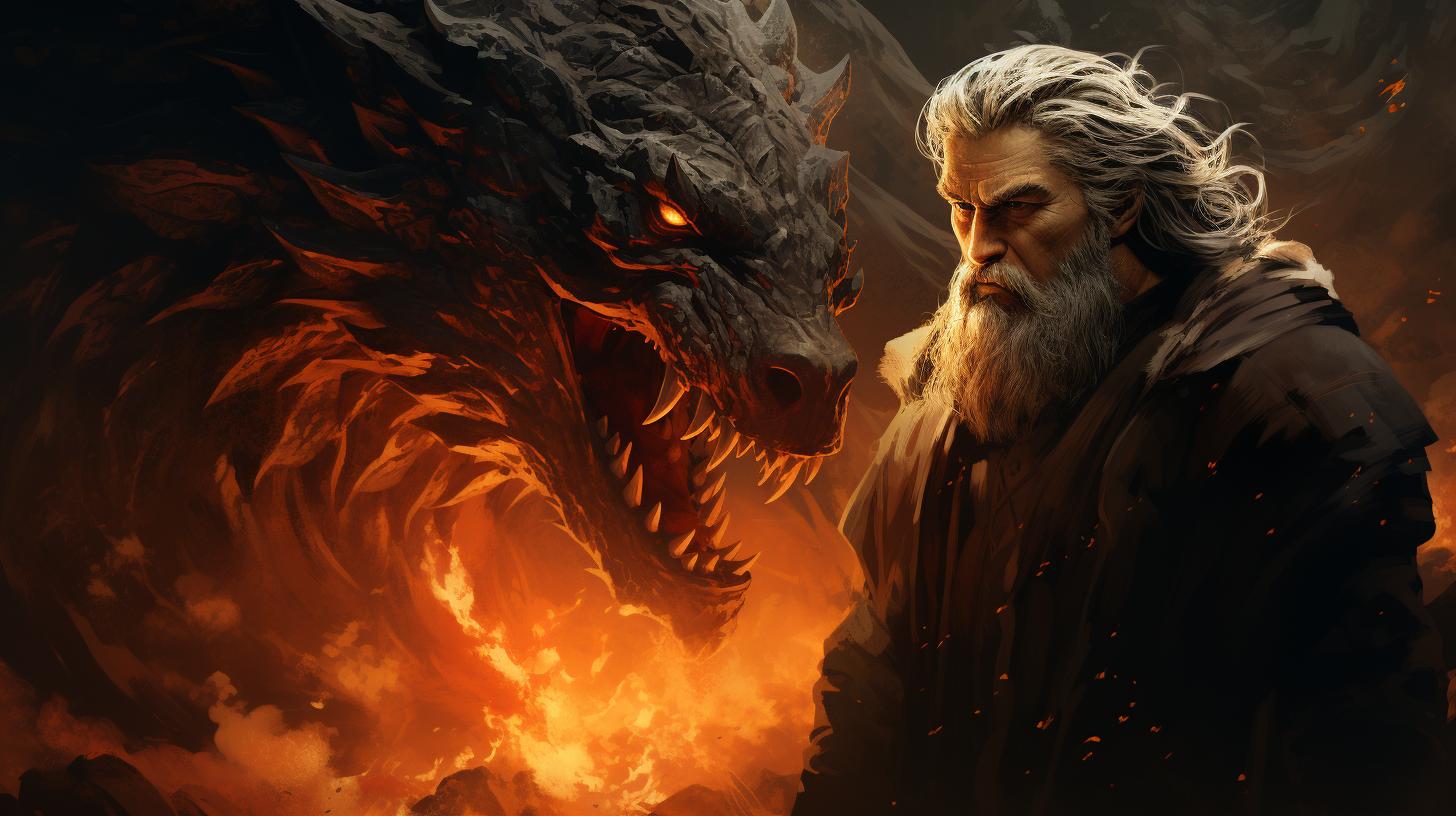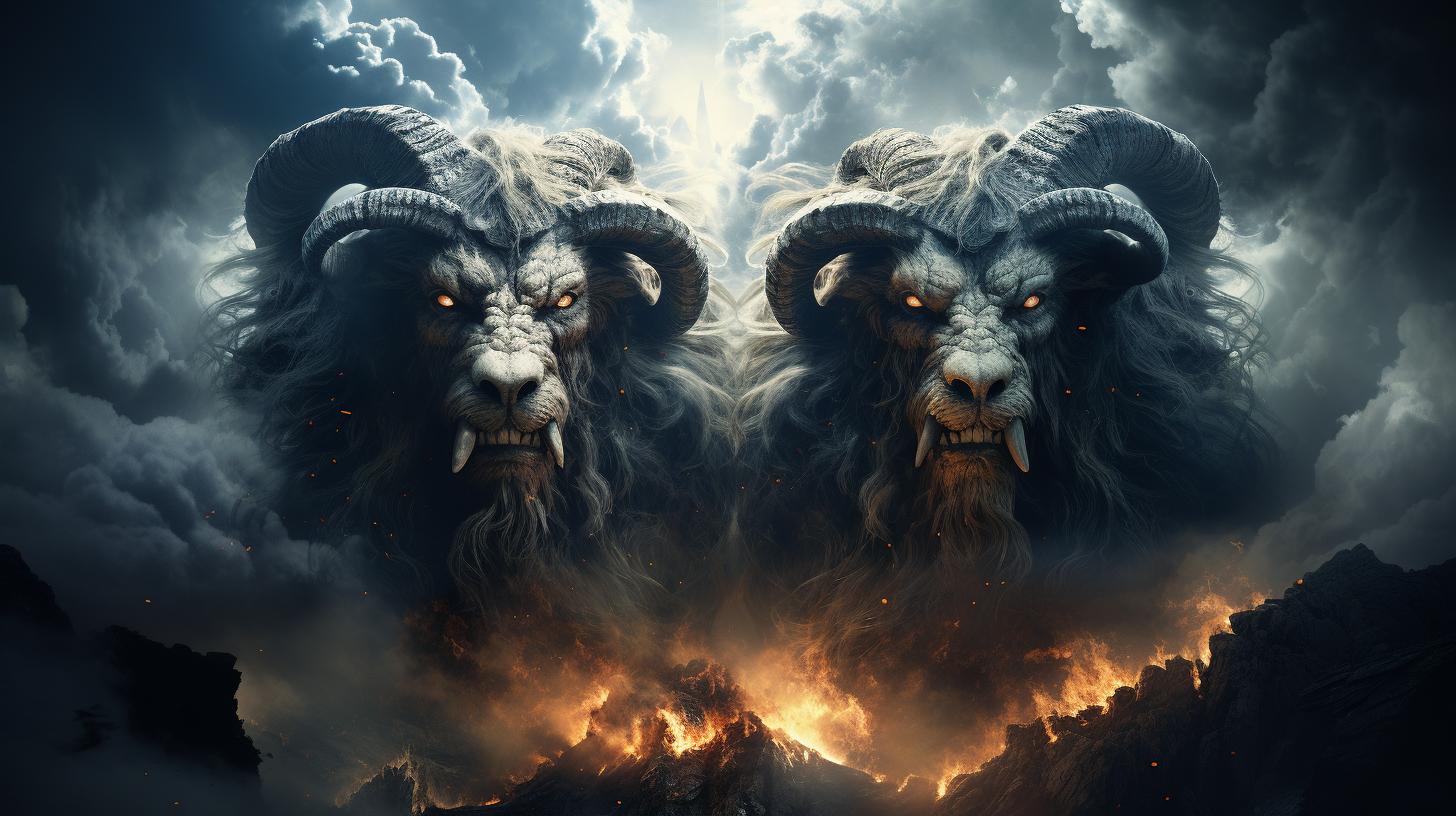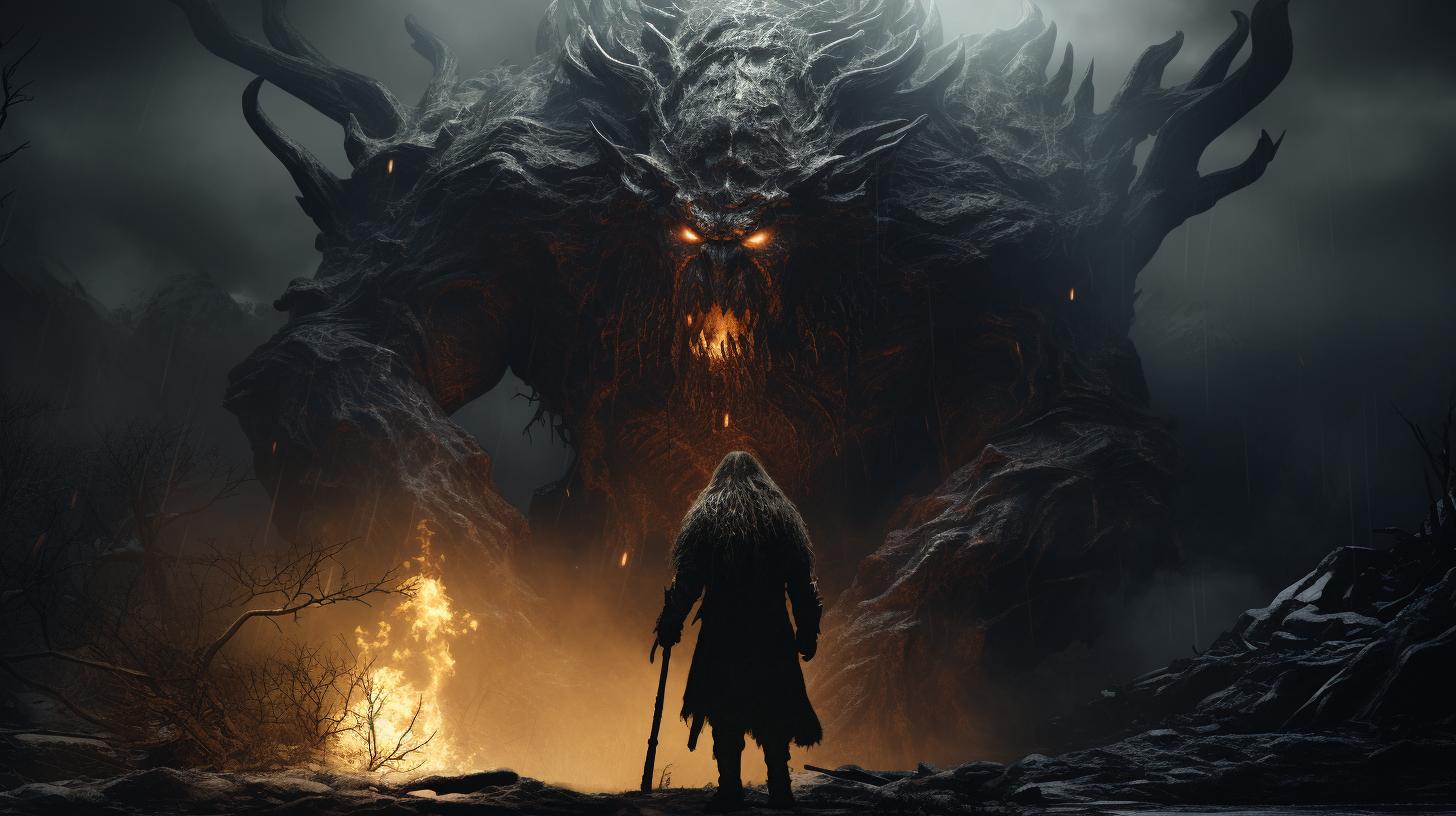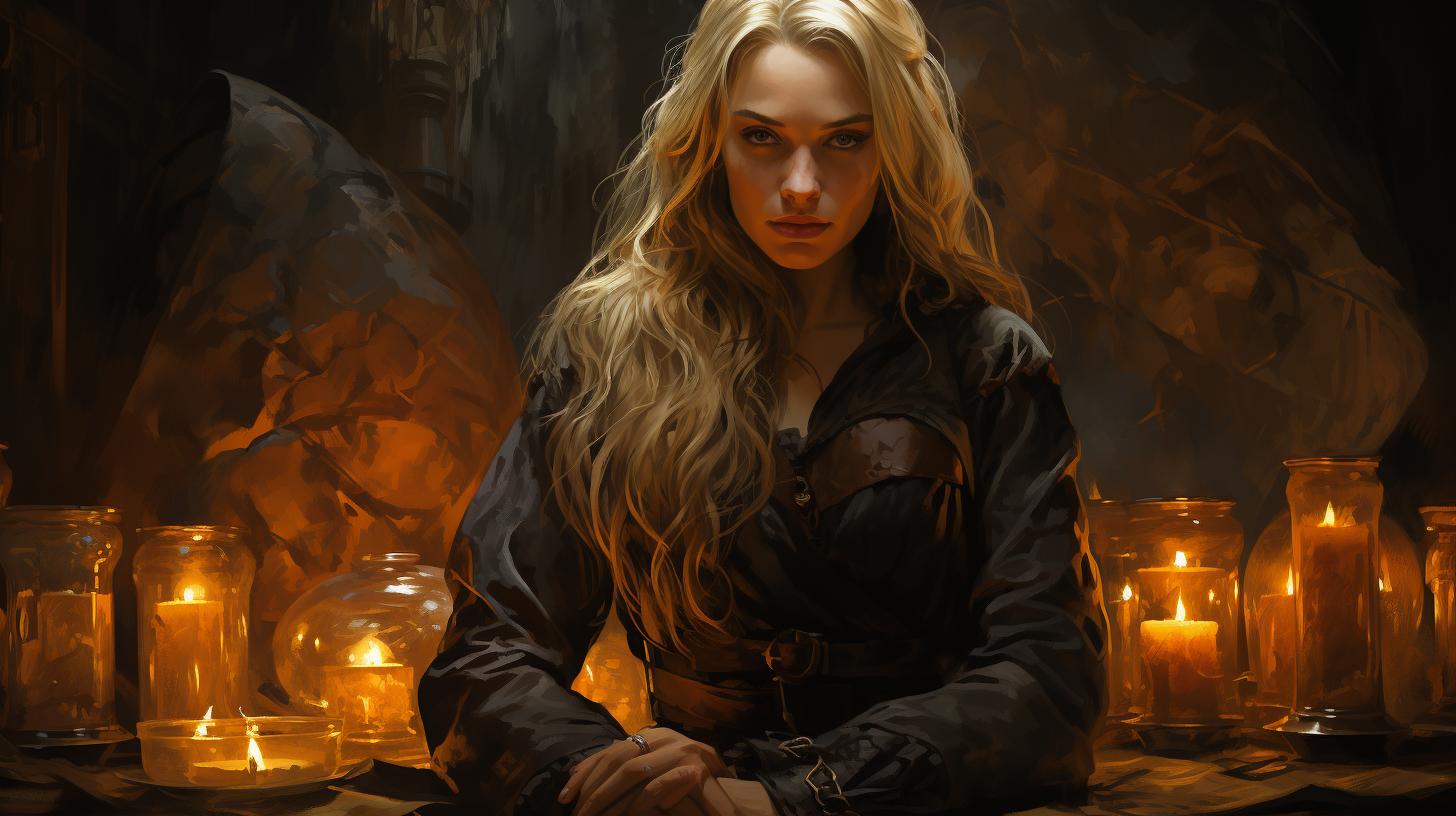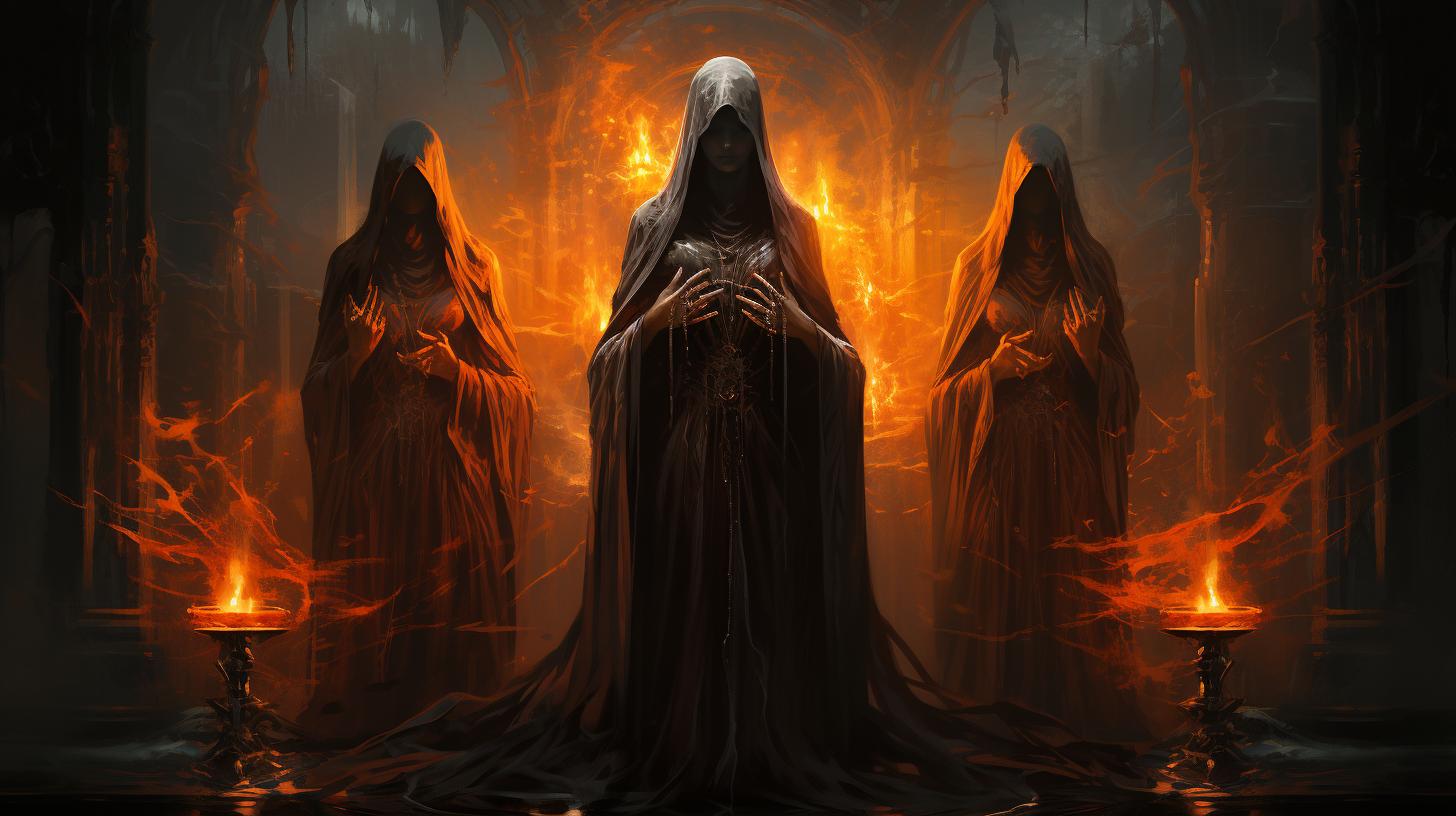Geri and Freki Norse Mythology: Odin’s Loyal and Brave Companions
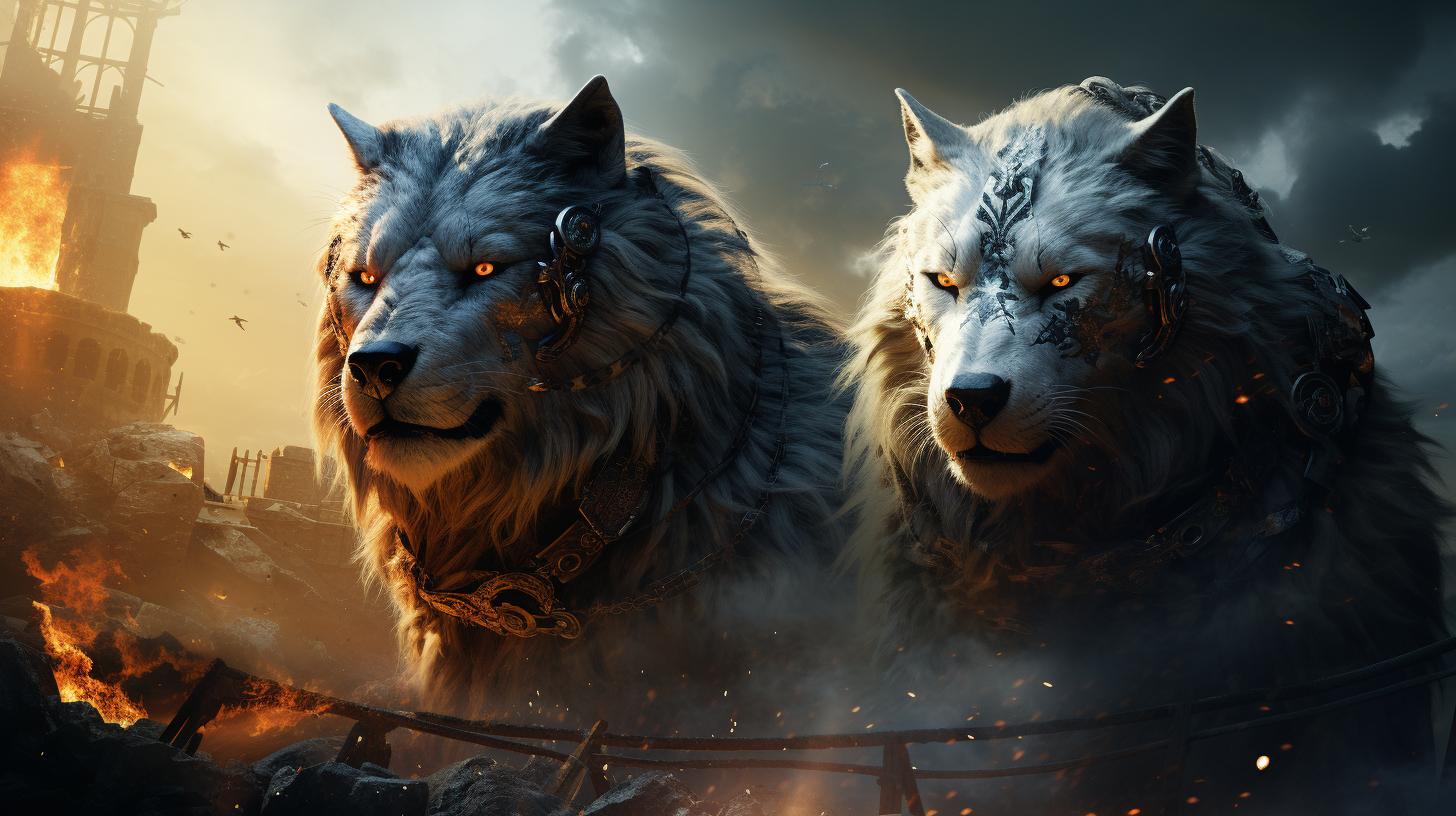
Geri and Freki are two prominent figures in Norse mythology, known as Odin’s loyal companions. They accompany Odin on his journeys and battles, serving as symbols of his presence.
These wolves are associated with wisdom, loyalty, and protection, often aiding the valkyries in guiding fallen warriors to Valhalla. In Norse culture, wolves hold both positive and negative symbolism, representing chaotic destruction as well as admirable qualities.
Geri and Freki are depicted as devoted guardians, seated at Odin’s feet as he watches over all realms. With their significant roles, they exemplify the rich mythology surrounding Norse beliefs and legends.
Origins of Geri and Freki in Norse Mythology
The origins of Geri and Freki, two significant figures in Norse mythology, can be traced back to ancient Norse texts and legends. These wolves play a crucial role in the tales of Odin, the powerful Norse god.
Let’s explore the legend of Geri and Freki in the Poetic Edda and their role in Norse mythology.
Legend of Geri and Freki in Poetic Edda
In the Poetic Edda, a collection of Old Norse poems, the legend of Geri and Freki is mentioned. These poems depict Geri and Freki as wolves that accompany Odin during his travels and adventures.
They are not only loyal and brave companions but also symbolize Odin’s wisdom and protection.
The Role of Geri and Freki in Norse Mythology
Geri and Freki hold significant roles within Norse mythology. They are considered powerful symbols of Odin’s presence and are believed to bring good fortune to the battlefield when they accompany Odin during battles.
It is believed that fallen warriors are taken by Odin to Valhalla with the assistance of Geri and Freki, showcasing their importance in the afterlife.
Furthermore, Geri and Freki are portrayed as the main guardians of Odin, faithfully sitting at his feet while he oversees all realms from his throne.
Their unwavering dedication to protecting Odin sets them apart from other gods’ companions, emphasizing their unique bond with the mighty god of Norse mythology.
With origins rooted in ancient Norse texts and serving various symbolic purposes, Geri and Freki hold a prominent place in Norse mythology.
Their loyal and protective relationship with Odin establishes their importance within the intricate tales of the Norse gods.
Meaning and Symbolism of Geri and Freki
Geri and Freki, the two wolves in Norse mythology, hold significant meaning and symbolism within the cultural context of the Vikings. These wolves embody various qualities and represent different aspects of Norse beliefs.
- Wisdom: Geri and Freki are associated with wisdom in Norse mythology. Like the wolves, the Vikings believed that wisdom came from observing and learning from nature. They saw the wolves’ behavior, hunting techniques, and social dynamics as a source of valuable knowledge.
- Protection: The wolves symbolize protection in Norse culture.
As loyal companions of Odin, Geri and Freki were devoted to safeguarding him and his realm. Their presence on the battlefield was considered a good omen, signaling Odin’s protection and ensuring the warriors’ safety.
- Loyalty: Geri and Freki epitomize loyalty in Norse mythology.
Their unyielding dedication and commitment to Odin showcase the importance of loyalty within Viking society. The wolves serve as a reminder of the values of faithfulness and unwavering support.
- Natural Order: In Norse belief, wolves represented the natural order of the world.
They symbolize the balance between chaos and order, with their presence signifying the ongoing cycle of life, death, and rebirth.
The symbolism surrounding Geri and Freki reflects the Vikings’ reverence for nature and their desire to emulate the positive qualities embodied by wolves.
By incorporating these attributes into their mythology, the Vikings sought to learn from and align themselves with the wisdom, protection, and loyalty represented by Geri and Freki.
Geri and Freki: Odin’s Loyal Companions
In Norse mythology, Geri and Freki hold a significant role as loyal companions to Odin, the Allfather.
These two mighty wolves accompany Odin on his journeys and adventures, showcasing their unwavering loyalty and companionship.
As Odin’s faithful animal allies, Geri and Freki are always by his side, whether he is traversing through different realms or engaging in epic battles.
They symbolize the unbreakable bond between Odin and his trusted companions, embodying the values of loyalty, courage, and protection.
The presence of Geri and Freki in Odin’s company is regarded as a testament to his power and authority.
Their presence on the battlefield serves as a good omen, signaling Odin’s imminent arrival and guaranteeing victory for his followers.
These noble wolves are renowned for their fierce dedication to Odin and their relentless commitment to his safety and well-being.
While they are true and steadfast allies to Odin, they are not considered friends to other gods, further emphasizing their exclusive loyalty to the Allfather.
Together, Geri and Freki represent the unwavering loyalty and companionship that resonates strongly in Norse mythology.
Their presence alongside Odin exemplifies the bond between humans and animals, showcasing the admiration and reverence the Vikings had for their animal companions.
Throughout their adventures and battles, Geri and Freki play a vital role in upholding Odin’s position as the ruler of the gods, acting as his guardians and protectors.
Their presence at Odin’s feet, as he sits on his throne, symbolizes their eternal commitment to safeguarding him and his realm.
Overall, Geri and Freki’s significance in Norse mythology cannot be understated.
As Odin’s loyal companions, they embody the values of loyalty, bravery, and protection. Their unwavering devotion to Odin serves as a testament to the profound bond between humans and animals in Norse culture, carrying deep symbolism and meaning.
Geri and Freki in Battle: Portents of Odin’s Presence
In Norse mythology, Geri and Freki play a significant role in battles as symbols of Odin’s presence. Their presence on the battlefield is believed to be an auspicious sign, indicating the involvement of Odin himself.
As loyal companions of the Allfather, Geri and Freki demonstrate their bravery and loyalty by standing by his side during warfare.
These fierce wolves embody the relentless spirit of the warriors who fight alongside Odin. Their intimidating presence instills courage and inspires the warriors to stand strong against their enemies.
Geri and Freki’s unwavering loyalty to Odin signifies their commitment to protecting and defending their leader, further strengthening the morale of the warriors who fight for him.
In the midst of the chaos of battle, the sight of Geri and Freki by Odin’s side serves as a beacon of hope for the warriors on the field.
Their appearance signifies that Odin is present, watching over them and guiding their actions. This knowledge grants the warriors reassurance and confidence, fueling their determination to emerge victorious.
It is said that if a warrior falls in battle, Odin himself will choose them to be taken to Valhalla, the great hall of the fallen heroes.
The presence of Geri and Freki ensures that Odin’s warriors will be granted entrance to this revered afterlife, where they will continue to fight alongside their fellow fallen warriors until the onset of Ragnarök, the great battle that will mark the end of the world.
In conclusion, Geri and Freki’s presence in battle symbolizes Odin’s involvement and serves as an omen of victory. Their unwavering loyalty, bravery, and protective nature inspire warriors to fight fearlessly, knowing that Odin, the great leader, is watching over them.
As guardians of Odin’s realm, Geri and Freki fulfill their role with unwavering dedication, instilling hope and strength in the hearts of those who fight alongside them.
Geri and Freki in Valhalla: The Fate of Fallen Warriors
Valhalla, the great hall of Odin, is the ultimate destination for fallen warriors.
In this majestic realm, brave warriors are chosen by Odin himself to dwell in eternal glory. Geri and Freki play a crucial role in this process, as they assist the valkyries in guiding these fallen warriors to Valhalla.
When warriors perish in battle, their spirits are welcomed into Valhalla, where they prepare for the final battle of Ragnarok. It is believed that Odin, accompanied by Geri and Freki, leads this army of fallen warriors, instilling courage and ensuring their eternal protection.
Geri and Freki’s presence in Valhalla serves as a powerful symbol of Odin’s watchful eye, affirming his commitment to safeguarding his chosen warriors. These loyal wolves guard the gates of Valhalla, offering their unwavering protection to those who have proved their mettle in combat.
As the guardians of Valhalla, Geri and Freki epitomize loyalty and devotion. Their unwavering dedication to Odin and the warriors under his care is evident in their constant vigilance and protective stance.
These noble wolves stand as a testament to the bond between man and beast, as they serve Odin and his warrior kin with unwavering loyalty and bravery.
- Geri and Freki embody the valor and strength found in fallen warriors.
- As Odin’s faithful companions, they ensure the safety and protection of Valhalla.
- Through their presence, they serve as a reminder of the honorable fate awaiting those who die in battle.
- Their guardianship reflects the deep connection between Odin, his wolves, and the warriors who have earned their place in Valhalla.
- Geri and Freki’s role in Valhalla highlights their significance in Norse mythology and the esteem in which they are held.
The Cultural Perception of Wolves in Norse Mythology
In Norse mythology, wolves hold significant symbolism and are viewed with both reverence and caution.
They embody various aspects, representing chaos and destruction as well as wisdom, loyalty, and protection.
Wolves as Symbols of Chaos and Destruction
Within Norse culture, wolves are associated with chaos and destruction. They are fierce predators and embody the wild, untamed forces of nature. Their presence signifies the potential for upheaval and the unpredictable nature of the world.
Wolves as Symbols of Wisdom, Loyalty, and Protection
Despite their association with chaos, wolves also embody positive qualities in Norse mythology. They are revered for their wisdom, loyalty, and protective nature. Wolves are seen as guardians, fiercely loyal to their pack and those they hold dear.
- Wisdom: Wolves are believed to possess inherent wisdom, attributed to their ability to navigate and survive in the harsh Nordic landscapes. Their instincts and intuition are revered, serving as guidance for humans.
- Loyalty: Wolves are known for their unwavering loyalty to their pack.
This loyalty is highly valued and serves as an inspiration for the Vikings, promoting the importance of loyalty in relationships and communities.
- Protection: Wolves are seen as protectors, defending their territory and loved ones.
They represent the need for strength, bravery, and the willingness to stand up for what is right in the face of adversity.
With Geri and Freki being the loyal companions of Odin, the wolves symbolize these qualities and serve as a reminder of the importance of wisdom, loyalty, and protection within Norse culture.
Geri and Freki: Guardians of Odin’s Realm
Within Norse mythology, Geri and Freki play a crucial role as the dedicated protectors of Odin and his realm. Let’s delve into their unwavering devotion and their important role in safeguarding Odin’s throne.
Geri and Freki’s Devotion to Odin
Geri and Freki’s loyalty to Odin is unparalleled. These two noble wolves are constantly by Odin’s side, symbolizing their devotion and dedication. Their unwavering presence showcases their commitment to safeguarding Odin and his realm.
With their presence, Geri and Freki solidify Odin’s status as the supreme ruler, sitting at his feet as he oversees all realms. Their unwavering loyalty and willingness to protect and serve Odin exemplify their important role as guardians.
Geri and Freki’s Role in Protecting Odin’s Throne
A constant presence at Odin’s side, Geri and Freki act as the ultimate protectors of his throne. They keep a watchful eye on Odin’s realm, ensuring its security and defending it from any potential threats.
With their fierce and valiant spirits, Geri and Freki embody the qualities required to protect Odin’s throne. Their vigilance and courage instill confidence, providing Odin with a sense of safety within his realm.
As the primary guardians, Geri and Freki also serve as a symbol of power and authority within Norse mythology. Their role extends beyond mere companionship, representing the strength and protection inherent to Odin’s reign.
- Constant companions at Odin’s side
- Symbolize loyalty, courage, and devotion
- Act as protectors of Odin’s throne
- Ensure security within Odin’s realm
- Exemplify power and authority
In conclusion, Geri and Freki are the unyielding guardians of Odin’s realm.
Their unwavering devotion and protection signify their significant role within Norse mythology, solidifying their place as the loyal companions and protectors of the mighty Odin.
The Viking Connection: Wolves and their Positive Traits
Wolves held a significant place in Viking culture, and their association with positive qualities was deeply rooted in Norse mythology.
The Vikings admired and sought to inherit the admirable traits embodied by these magnificent creatures. Let’s explore some of the positive traits often associated with wolves in Norse mythology:
- Courage: Wolves were seen as symbols of bravery and courage in Viking society.
Their fearlessness and unwavering determination served as an inspiration for warriors who aspired to demonstrate similar qualities on the battlefield.
- Love: Wolves were known for their strong sense of loyalty and love for their pack.
This concept of loyalty resonated deeply with the Viking culture, where devotion to one’s kin and community was highly regarded.
- Wisdom: Wolves were believed to possess great wisdom in Norse mythology.
Their keen instincts and ability to adapt to various environments exemplified the importance of intelligence and resourcefulness in Viking society.
- Protection: Wolves played a protective role, defending their pack against any threats.
This attribute of safeguarding their own was seen as a valuable quality by the Vikings, who held the safety and security of their community in high regard.
Odin, the chief god of Norse mythology, himself drew inspiration from wolves and their positive traits.
He advised humans to learn from wolves and adopt their qualities of courage, love, wisdom, and protective instincts. Through Odin’s creations, Geri and Freki, the Vikings worshipped and revered these noble creatures, further strengthening the connection between wolves and their positive traits in Viking culture.
Odin’s Creations: Geri, Freki, Huginn, and Muninn
Odin, the powerful deity in Norse mythology, is known for his creations that play significant roles in the Norse world. Among his remarkable creations are Geri and Freki, the loyal wolves who accompany him on his journeys.
These wolves symbolize courage, protection, and unwavering loyalty, embodying the traits that Odin values.
In addition to Geri and Freki, Odin also created Huginn and Muninn, two renowned ravens.
Huginn, meaning “thought,” and Muninn, meaning “memory,” serve as Odin’s messengers, aiding him in gathering information from all realms.
Geri and Freki’s purpose extends beyond companionship. As Odin’s faithful and fierce guardians, their presence signifies his power and watchful eye over his domain.
They stand as symbols of Odin’s authority and protection, ready to defend him at any moment.
Furthermore, Huginn and Muninn hold intellectual significance for Odin. They assist him in his pursuit of knowledge and wisdom, reflecting Odin’s insatiable thirst for understanding the universe and its mysteries.
Together, these creations – Geri, Freki, Huginn, and Muninn – represent Odin’s divine ingenuity and his ability to empower creatures who embody qualities he values. Their roles and symbolism in Norse mythology continue to captivate and fascinate, enriching the complex tapestry of this ancient belief system.
Odin as the Wolf God: Transformations and Connections
Odin, the chief deity in Norse mythology, possesses a remarkable connection with wolves, particularly with Geri and Freki. Known as the Wolf God, Odin exhibits a deep affinity for these majestic creatures.
But what is it about wolves that draws Odin to them?
One significant aspect of Odin’s association with wolves is his ability to transform into one himself. Odin has the power to shape-shift into various forms, and often takes on the form of a wolf to navigate through different realms.
This transformative ability allows him to gain unique perspectives and access places that would be otherwise inaccessible.
Furthermore, Odin’s connection with wolves extends beyond his own personal transformations. He has a profound understanding of wolf behavior and has been known to impart their qualities onto mankind.
Just as wolves display courage, love for their pack, and wisdom in caring for their young, Odin encourages humans to embody these traits. He sees in wolves a model of strength, loyalty, and genuine care.
In addition to his relationship with Geri and Freki, Odin is also closely tied to two other creatures: Huginn and Muninn, his loyal ravens. These ravens play a crucial role in Odin’s exploits and are often referred to as his “thought” and “memory.”
They assist in his search for knowledge and provide him with valuable information, further emphasizing his connection to the animal kingdom.
Odin’s transformations into a wolf, combined with his affinity for Geri, Freki, Huginn, and Muninn, demonstrate his deep respect for and connection to the natural world.
By aligning himself with these animal companions, Odin not only embraces their qualities but also seeks to impart their wisdom and characteristics onto humankind.
In conclusion, Odin’s role as the Wolf God is not only defined by his ability to shape-shift into a wolf but also by his close relationship with Geri, Freki, and other animal companions.
Through these connections, Odin emphasizes the importance of embodying the admirable qualities found within the animal kingdom. As we explore Geri and Freki’s significance in Norse mythology, it becomes clear that their presence alongside Odin symbolizes the profound bond between gods, humans, and the natural world.
.











